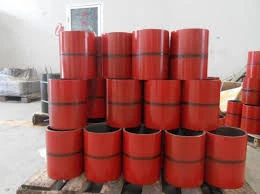- Afrikaans
- Albanian
- Amharic
- Arabic
- Armenian
- Azerbaijani
- Basque
- Belarusian
- Bengali
- Bosnian
- Bulgarian
- Catalan
- Cebuano
- Corsican
- Croatian
- Czech
- Danish
- Dutch
- English
- Esperanto
- Estonian
- Finnish
- French
- Frisian
- Galician
- Georgian
- German
- Greek
- Gujarati
- Haitian Creole
- hausa
- hawaiian
- Hebrew
- Hindi
- Miao
- Hungarian
- Icelandic
- igbo
- Indonesian
- irish
- Italian
- Japanese
- Javanese
- Kannada
- kazakh
- Khmer
- Rwandese
- Korean
- Kurdish
- Kyrgyz
- Lao
- Latin
- Latvian
- Lithuanian
- Luxembourgish
- Macedonian
- Malgashi
- Malay
- Malayalam
- Maltese
- Maori
- Marathi
- Mongolian
- Myanmar
- Nepali
- Norwegian
- Norwegian
- Occitan
- Pashto
- Persian
- Polish
- Portuguese
- Punjabi
- Romanian
- Russian
- Samoan
- Scottish Gaelic
- Serbian
- Sesotho
- Shona
- Sindhi
- Sinhala
- Slovak
- Slovenian
- Somali
- Spanish
- Sundanese
- Swahili
- Swedish
- Tagalog
- Tajik
- Tamil
- Tatar
- Telugu
- Thai
- Turkish
- Turkmen
- Ukrainian
- Urdu
- Uighur
- Uzbek
- Vietnamese
- Welsh
- Bantu
- Yiddish
- Yoruba
- Zulu
what is a bull plug used for
Understanding Bull Plugs Their Uses and Importance in Industry
In various industries, particularly in plumbing, oil and gas, and utility sectors, maintenance and operations often require effective solutions to manage liquids and gases. One such solution that has garnered attention is the bull plug. But what exactly is a bull plug, and what is it used for? This article aims to explore the nature of bull plugs, their applications, and why they are essential tools in various fields.
What is a Bull Plug?
A bull plug is a type of fitting typically used in piping systems to seal the end of a pipe or a valve. It is designed to cap off the end of a system, preventing the flow of liquids or gases from escaping. Bull plugs come in various sizes and materials, including metal, plastic, and rubber, making them versatile for different applications. The design may include threads or a smooth surface to ensure a secure fit when applied to the respective pipe or valve.
Applications of Bull Plugs
1. Plumbing In residential and commercial plumbing systems, bull plugs are often used during maintenance tasks. When servicing a plumbing line, plumbers may use bull plugs to temporarily seal pipes to prevent water flow, allowing for repairs or inspections without any leakage.
2. Oil and Gas Industry The oil and gas sector frequently utilizes bull plugs in various stages of drilling and production. These plugs can seal off pipes at well heads, ensuring that no hazardous substances escape into the environment during extraction or when the system is not in use. This is critical for safety and environmental protection.
3. Utility Services Utilities that manage water, gas, and electricity often use bull plugs to isolate sections of their systems for repair or maintenance, preventing service interruptions. For example, when a gas line requires inspection, utility workers can use a bull plug to safely block the flow, minimizing risks associated with flammable gases.
what is a bull plug used for

4. Manufacturing In manufacturing environments, bull plugs are utilized in production lines where pipes are used to transport materials. They can seal unused ports or sections of a piping network to maintain pressure and prevent contamination of products during production processes.
Importance of Bull Plugs
The importance of bull plugs in various applications cannot be overstated. Firstly, they provide a reliable sealing solution that helps maintain system integrity. By preventing leaks, bull plugs ensure safety for workers and the surrounding environment, particularly in industries dealing with hazardous materials.
Secondly, bull plugs are essential for efficient maintenance operations. They allow technicians to perform repairs and inspections without the need for extensive system shut-downs, leading to increased productivity and reduced downtime. This is particularly beneficial in industries like oil and gas and utilities, where continuous operation is crucial.
Furthermore, bull plugs are generally easy to install and remove, making them user-friendly. Their design allows for quick implementation, which is vital when urgent repairs are necessary or when a rapid response is required in case of a leak.
Conclusion
In conclusion, the bull plug is a straightforward yet vital component in various industries. Its primary function is to seal off pipes and valves, thereby preventing the escape of liquids or gases during maintenance and operational processes. Whether in plumbing, oil and gas, utility services, or manufacturing, the use of bull plugs plays an essential role in ensuring safety, efficiency, and environmental protection. As industrial demands continue to evolve, the bull plug will undoubtedly remain a crucial tool in managing fluid and gas systems effectively.
-
Tubing Pup Joints: Essential Components for Oil and Gas OperationsNewsJul.10,2025
-
Pup Joints: Essential Components for Reliable Drilling OperationsNewsJul.10,2025
-
Pipe Couplings: Connecting Your World EfficientlyNewsJul.10,2025
-
Mastering Oilfield Operations with Quality Tubing and CasingNewsJul.10,2025
-
High-Quality Casing Couplings for Every NeedNewsJul.10,2025
-
Boost Your Drilling Efficiency with Premium Crossover Tools & Seating NipplesNewsJul.10,2025







